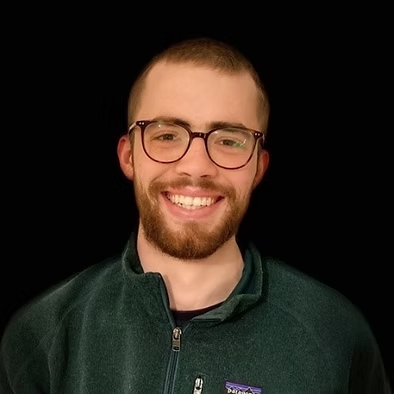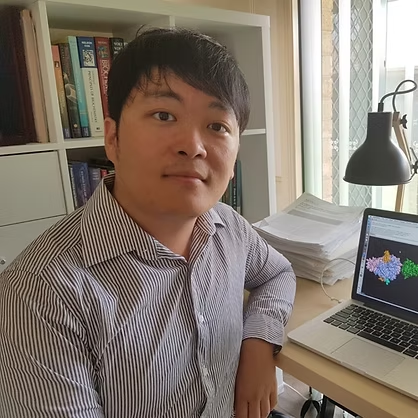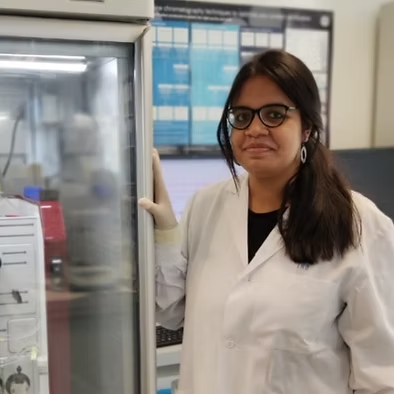We truly believe in the potential of mass photometry to revolutionise bioanalytics. It is always heartening for us to learn about new applications of mass photometry.
To encourage and provide a platform for this unique technology to be shared with the community at large, we are offering a travel grant of up to £2,000 to any mass photometry users wishing to present their work featuring mass photometry at a scientific conference. The travel grant is designed to offset the cost of travel and any related expenses, to a conference of the applicant’s choice.
Applications will be evaluated by a select panel based on novelty, impact, and scientific merit.
Applications will be considered from any users of mass photometry, including early career scientists, graduate and PhD students, post-doctoral researchers, lab technicians, and staff scientists.
Note: We are unable to pay awards to recipients in jurisdictions, countries or regions of the world subject to sanctions, embargoes or other political trade restrictions put in place by the United Nations, the EU or the UK.

PhD candidate at Max Planck Institute for Terrestrial Microbiology
Refeyn Travel Grant Winner (March 2021)
Topic: Evolution of specificity and entrenchment at the dawn of Form I Rubiscos
“I attended the Molecular Basis of Microbial One-Carbon Metabolism, Gordon Research Conference, in Boston, US […]. It was great to be at that conference. It was my first international conference. I managed to meet a lot of people that also worked with Rubisco and similar protein systems. It was very nice to see everyone together in a room and not on Zoom, talking about their research. It was inspiring and it also inspired collaborations with other people that work with Rubisco.”
“I was able to narrate a finished part of my story. Many people at the conference haven’t previously been concerned with exploring the evolutionary aspect of their protein complex. Therefore, I think that my poster inspired other people to also look at this aspect. This led to many fruitful discussions and opened up a lot of research questions. On top of that, everybody loved mass photometry. We had plenty of discussions about mass photometry and how it could be applied to their research.”

Postdoctoral Researcher at The University of Queensland, Institute for Molecular Bioscience
Refeyn Travel Grant Winner (March 2021)
Topic: Probing and modulating the function of the Retromer endosomal trafficking complex through the novel macrocyclic peptides
“I went to ComBio 2022, which took place at the end of September in Melbourne. For me it was important to attend this conference, as my project had made me interested in the translational side of research. I was hoping for some expert feedback and networking opportunities.
The conference was pretty good! There were many interesting talks, and I was able to present my data as a talk in the drug discovery section. I got positive feedback, as well as interest and comments around the delivery of cyclic peptides inside the cells, which is a major challenge in cyclic peptides research. Certainly, this is going to be an area where we are going to be focusing going forward, along with our collaborators.”

Recombination Mechanisms Scientist at the Institute for Research in Biomedicine
Refeyn Travel Grant Winner (March 2022)
Topic: Mechanism of DNA unwinding by MCM8-9 and HROB
I attended the Recombination Mechanisms Conference in Lisbon in July 2023. This conference marked the continuation of a 50-year tradition, bringing fresh insights into the realms of DNA repair, replication fork maintenance, and meiosis. The conference’s focus on genome stability and cancer prevention provided enlightening insights that were crucial to my research.
A personal highlight for me was presenting my work in a poster session at this esteemed gathering. The feedback I received was both encouraging and insightful. Networking with peers and leading experts, whose work I deeply admire, offered invaluable opportunities for sparking new ideas and potential collaborations. Additionally, the chance to immerse myself in Lisbon’s rich history and vibrant culture added an unforgettable dimension to my experience. This conference was more than just informative; it was a source of inspiration, bolstering my enthusiasm for continued research and collaboration.
Thanks to the Travel Grant, for making this possible.

Postdoctoral researcher at the University of Alberta
Refeyn Travel Grant Winner (March 2022)
Topic: Quantifying Oligomer Populations in Real Time during Protein Aggregation Using Single-Molecule Mass Photometry
I am happy to inform you that the presentation at the Protein Society Annual Symposium was well-received. The content of the presentation was based on the publication I submitted in my application, and it sparked a great deal of interest, leading to exchange of ideas addressing protein aggregation challenges. I’m grateful for Refeyn’s invaluable support through the travel grant, which made it possible to share our work with a broader audience.
Fill in the form below to submit your application for the Refeyn Travel Grant
This form no longer accepts submissions.